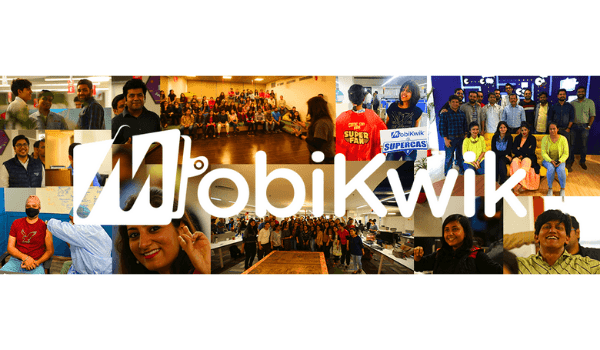On the other, it is hailed as an innovation catalyst, one that allows anyone to start a business overnight, generate high-quality content effortlessly, and redefine industries. Both narratives miss the truth: AI can neither become an existential threat nor can it become a magic bullet. It is, in the end, a tool, and, like any other tool, its impact depends on how one uses it.
The future of work isn’t about resisting AI or blindly embracing it. Instead, it requires a shift in mindset—one that moves from fear and skepticism to collaboration and opportunity. Calvin Chu, founder of Eden Strategy Institute, has dedicated his career to helping businesses and societies navigate technological change. His message is clear. The organizations and individuals that thrive in the AI era will be those who evolve alongside it, leveraging AI as a strategic collaborator rather than an adversary.
Since the landmark Frey and Osborne study from Oxford in 2013, researchers have been dissecting how technology reshapes job roles. The study broke down occupations into component skills and analyzed which of those skills were most susceptible to automation. Tasks that require high accuracy, rapid processing, or repetitive execution, such as data entry, financial modeling, and even aspects of legal research, are the easiest to automate.
Yet, the study also highlighted a key insight. The most resilient and valuable job skills in the AI era are distinctly human. Creativity, critical thinking, emotional intelligence, problem-solving, and collaboration (often called 21st-century competencies) will define success in the future workforce. AI can generate content, synthesize knowledge, and process vast amounts of data. However, it cannot replace human ingenuity, contextual judgment, or the ability to connect with the audience on an emotional level.
As per Chu, the challenge isn’t technical. It’s psychological. AI adoption requires a shift in how people perceive their roles, capabilities, and future potential. Many workers hesitate to embrace AI, not because of a lack of access or knowledge, but because they don’t see themselves as capable of adapting.
This is where mindset becomes the most significant barrier to AI-driven progress. Eden Strategy Institute has spent years working with organizations, from government agencies to corporations, to help employees and leaders develop a growth-oriented, adaptive approach to technology. The key, Chu believes, starts with self-belief.
He explains: “When people think they can’t learn new skills or that AI will inevitably replace them, they disengage. But when they begin to experience small wins, whether it’s using AI to enhance their work, streamline a redundant process, or even to generate insights, they start gaining confidence. The victim mindset changes to confident individuals and active participants in walking alongside present scenarios.”
Eden has embedded these principles into its work, like the large-scale workforce transformation programs. The institute recognizes that AI adoption must go beyond training sessions and digital upskilling. As Chu states, “The first step is addressing human motivation and identity.”
One of the most overlooked skills in AI adoption is the ability to understand the right prompts and critically assess AI-generated outputs. Tools can produce essays, code, music, and even synthetic podcasts at lightning speed. But these tools are only as effective as the people using them.
Chu has experimented with these tools firsthand. He highlights the importance of prompt engineering—the ability to ask the right questions and frame problems effectively. He says: “The real value lies not just in using AI but in knowing how to direct it. The people who thrive will be those who can creatively prompt AI to generate new ideas, refine solutions, and push boundaries. It’s not just about what AI can do; it’s about how humans interact with it. AI not only brings our creativity to life but also stretches the limitations of our own imagination. It gives us the power to create to our hearts’ content.”
Similarly, critical thinking is more crucial than ever. AI can generate convincing content. However, without human discernment, misinformation and low-quality work can proliferate. Businesses must empower employees to analyze, refine, and apply AI-generated outputs effectively rather than relying on AI as an unquestioned authority.
Chu envisions a future where AI empowers people to enter new industries, start businesses, and create entirely new professions that didn’t exist before. He explains: “Instead of fearing AI-driven job displacement, we should be asking: ‘What new roles and opportunities will AI create? How can we prepare ourselves and the next generation to thrive in this evolving landscape?’ The organizations that embrace this shift will not only survive but lead in the future economy.”
The outdated notion that education ends in our 20s is no longer sustainable. Lifelong learning is now a necessity, not a luxury. Governments and organizations worldwide are investing in continuous education, but adoption remains a challenge. Singapore, for example, provides financial credits for lifelong learning, offering citizens access to thousands of training programs. Yet, many individuals hesitate to enroll, not due to lack of resources but because they don’t see the need or believe they can succeed in new areas. This highlights a critical insight: Policy and infrastructure alone aren’t enough. People need to see themselves as capable of change.
Chu emphasizes, “When individuals experience small successes, whether it’s learning a new skill, applying AI in their work, or adapting to a new role, they build momentum. This shift in self-perception and identity transformation is what will ultimately drive long-term growth.” According to Chu, businesses that focus on upskilling, creativity, and human-AI collaboration will gain a competitive edge. Individuals who embrace continuous learning and shift their mindset from fear to empowerment will be the architects of new industries. Moreover, societies that invest in inclusive AI adoption will see broader economic and social benefits.
As Calvin Chu and Eden Strategy Institute continue their mission of driving positive societal impact, their message is clear. The future of work is not AI vs. humans—it’s AI with humans. The only real limitation is mindset.




















